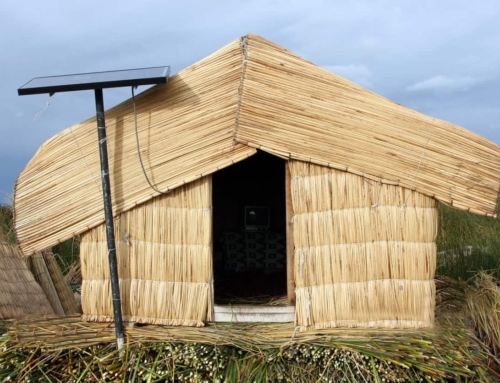The Lone Ranger used them. They’re supposed to kill werewolves. They seem like a cool idea, one that could possess magical powers. But when it comes to environmental and climate messaging, they are not much good.
In a previous post I covered the balance of fear and hope required to move people to action on climate change. Too much fear, and action disappears, replaced by fatigue and apathy. The opposite may also be true. Too much hope or positive news and your audience won’t take action because it seems our problems are about to be solved.
Nowhere is this issue of overly optimistic predictions more prevalent than in the area of “science-media reported” silver bullets. In most cases these regard the next tech miracle that will save us from climate catastrophe.
To understand this let’s take a look at an example, “the synthetic leaf.” Imagine a device much like a photovoltaic cell that takes sunlight and CO2 from the air and converts it into energy and fuel using photosynthesis. After all, this is what trees and plants do. We could build billions of these, and they would suck CO2 from our atmosphere and power the globe. You’re getting excited now aren’t you?
The trouble is that we’ve been working on artificial photosynthesis for decades. Technological breakthroughs take time, require commercial finance, and public policy and support. Many breakthroughs wind up on the trash pile of hope. Like our news journalists, science writers are also click-obsessed. So we use terms like “breakthrough,” “revolutionary,” and “game changer” to describe the slow process of science and technology. While this kind of reporting gets clicks for articles, it does little to help move the public to action. Not to mention we could just stop deforestation and plant some more trees today. That would help.
There is a whole set of media messages that are shared with the public around creating energy or the potential for geo-engineering our way out of climate change. Some of these are even propagated by climate deniers and skeptics as a means for saying don’t worry if climate change is true. Here are just a few of these silver bullets you might have heard.
- Nuclear fusion
- CO2 capture
- SO2 cloud seeding
- Hydrogen economy
- Space-based sun shields
- Algae fuel
- Clean Coal
All of these miss one key point in combatting the climate crisis. We have most of the solutions we need right now. Sure, there will be hard to decarbonize industries like cement and aviation. But let’s look at a pareto analysis of our global carbon footprint. This means that 80% of the existing solutions will require 20% of the work. This brings us a long way toward a carbon free world. For this 80%, a large portion of our solutions face hurtles of policy, political will, funding, incentivizing and scaling. All of the proposals above will also face those hurtles, and will take more time and money because they also have to be created first. This doesn’t mean that we don’t need research.
Research is essential to making progress against climate change. We need to invest in research and technology, and not cut budgets as proposed by the current administration. Some of our budget should be invested in the long range. But we also need to be careful in communicating silver bullets that can lull us into complacency. We need to be careful that industries with poor track records on climate don’t bamboozle our politicians with silver bullets and waste massive amounts of money on distant dreams. We need to use the green bullets we have to help now.
Here’s a useful metaphor and story. It’s pretty simple. When I was a kid, I told my father I wish he’d stop smoking. He replied that they’d have a cure for cancer by the time he got it. He died of smoking related cancer twenty years later. We still have no cure, except to stop smoking. It’s the same with our use of fossil fuels for energy. No silver bullets.
We are all connected. Savor the earth.
Hobie,
L. Hobart Stocking
SkyWaterEarth.com
hobart@skywaterearth.com
651-357-0110
Facebook: @SkyWaterEarthConnected
Twitter: @SkyWaterEarth








Leave A Comment